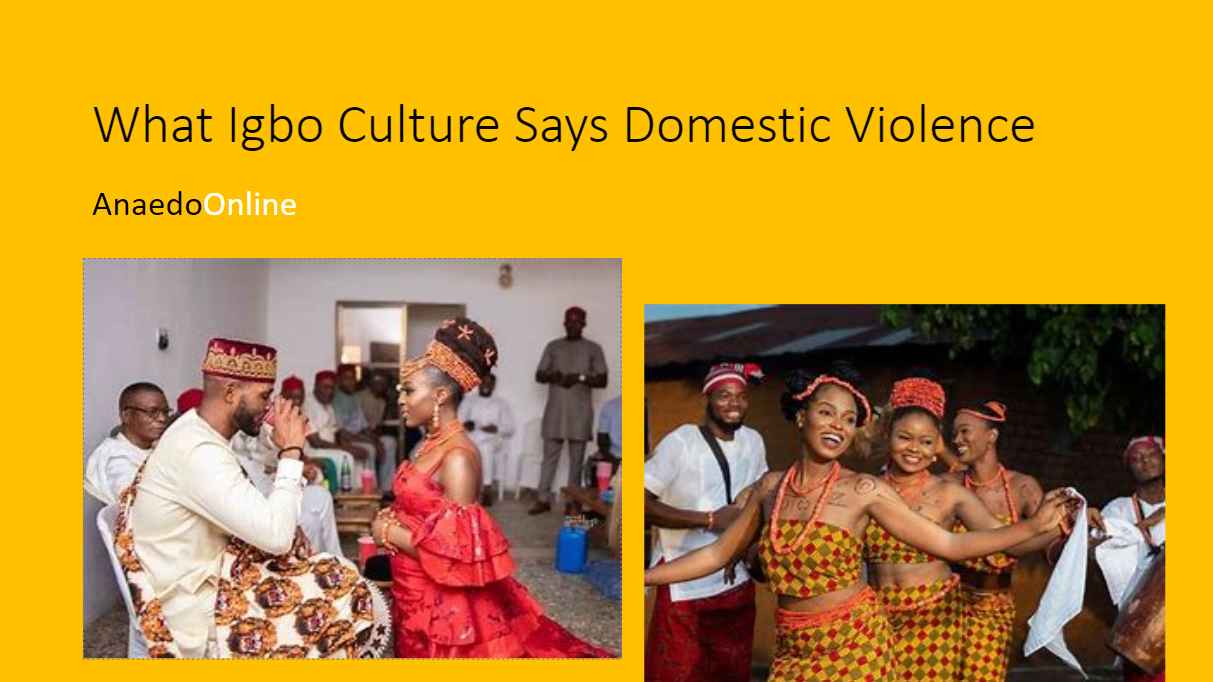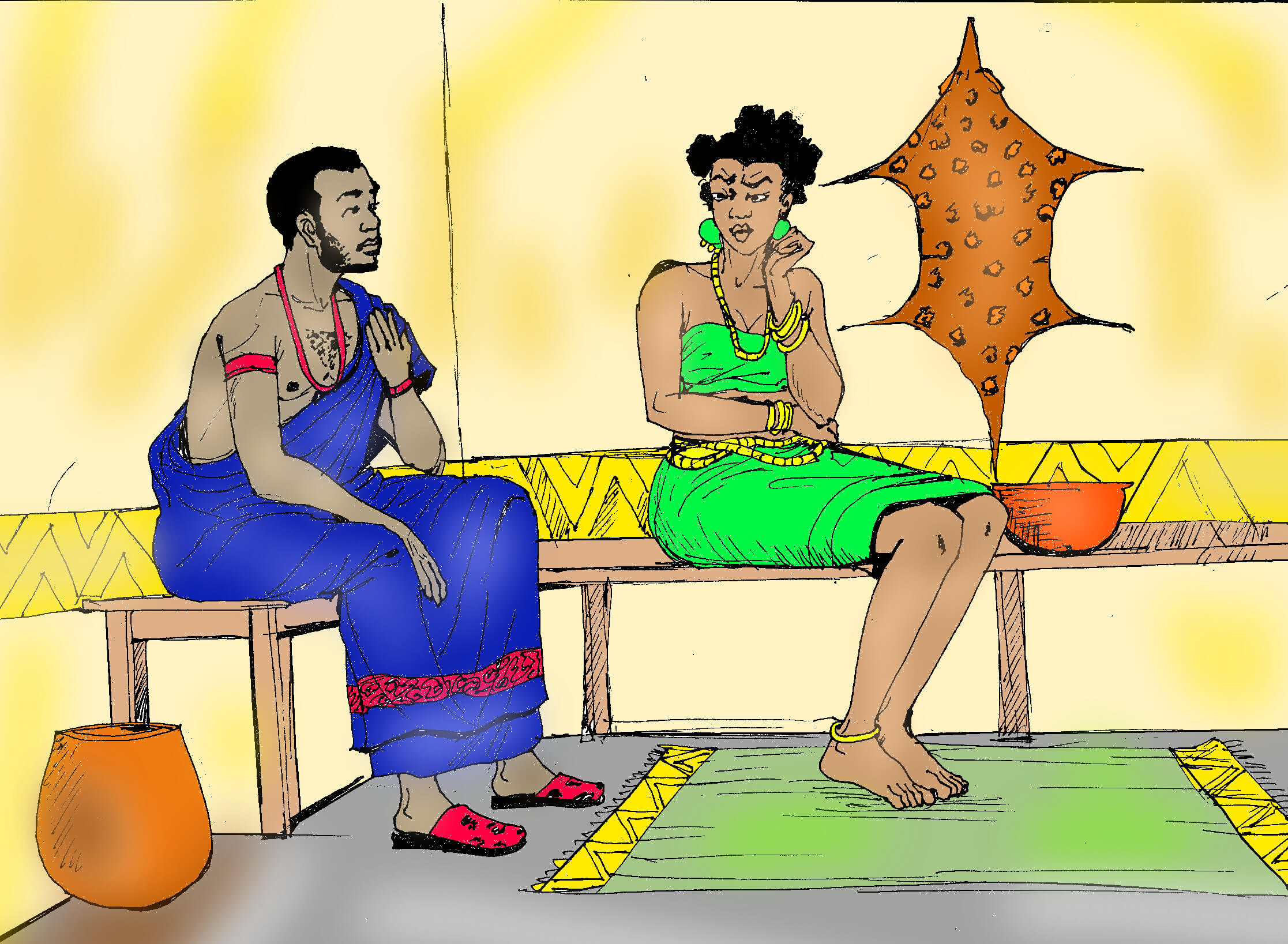Harmony Unveiled: Navigating Domestic Violence Through Igbo Cultural Wisdom
Domestic violence in Igbo culture, unfortunately, is not a novel occurrence. Throughout history, individuals, both men and women, have grappled with this challenging issue within their relationships. Exploring the cultural roots of the Igbo people sheds light on two fundamental concepts – “ego otiti okplili” and “ịgba alụkwaghịm” – that traditionally guided couples in Igbo land, offering a unique perspective on how they addressed and mitigated domestic violence. In this blog, we’ll delve into these cultural practices, examining their role in fostering harmony and preventing domestic violence within Igbo marriages.
1. Ego Otiti Okpili: A Cultural Safeguard Against Domestic Violence in Igbo Land
In Igbo culture, the institution of marriage is not just a union between a man and a woman but also involves a set of traditions and practices that ensure well-being and harmony within the marital relationship. One such significant tradition is the concept of “Ego Otiti Okpili,” a financial component attached to the linens of Igbo marriages.
Ego Otiti Okpili can be described as a form of financial commitment made by the groom to the bride’s parents. It is a monetary contribution presented alongside the dowry or bride price during the marriage negotiations. However, its significance extends beyond the economic transaction, as Ego Otiti Okpili serves as a symbolic assurance of the groom’s commitment to treating the bride with the utmost respect and refraining from any form of violence.
This financial contribution, known as Ego Otiti Okpili, essentially says, “In the unfortunate event that I ever resort to violence against your daughter, you have the authority to utilize this sum of money to summon capable individuals to address the situation – even if it means they might resort to physical intervention.”
This unique system was ingeniously devised to proactively curb the occurrence of domestic violence. It’s crucial to note that this arrangement operates on a mutual understanding, and the groom, by making this payment, consents to the potential consequences, emphasizing the seriousness with which the community regards the pledge to prevent violence within the marital relationship.
Paying the Igbo Bride Price: A Ritual of Commitment and Cultural Significance during Marriage Introduction
2. Igba Alukwaghim: Addressig Domestic Violence in Igbo Culture
Delving into the cultural landscape of the Igbo people, we uncover the profound traditional rite of Ịgba Alụkwaghị, a ceremony that intricately influences the dynamics of relationships within this vibrant community.
“Igba Alụkwaghịm” is a term in Igbo culture that translates to divorce. In the context of preventing domestic violence, it refers to a traditional practice where the bride and her family establish a pre-agreed period during which she can return to her family if she faces abuse or mistreatment in her marital home. This serves as a protective measure for the bride, ensuring that she has the option to leave an unsafe environment and seek refuge with her family if necessary.
The Ịgba Alụkwaghị ritual, rooted in the heart of Igbo culture, is a ceremonial process symbolizing the termination of marital bonds and the initiation of healing and renewal. This multifaceted tradition involves the return of the ngọ, emphasizing the formal closure of the union. As a communal affair, Ịgba Alụkwaghị underscores the interconnectedness of relationships, with extended families and community leaders providing crucial support in addressing marital challenges.
The ceremony incorporates prayers and blessings, creating a structured environment for emotional closure and new beginnings. Beyond concluding a marriage, the influence of Ịgba Alụkwaghị extends to navigating domestic challenges, offering insights into emotional closure, community support, and the preservation of cultural values. This traditional rite serves as a guardian of Igbo cultural values, guiding individuals toward understanding, resolution, and cultural continuity, especially in addressing the complexities of domestic violence.
Don’t Miss This: Nnewi Billionaire, Obi Ego Buries Father in Style (Photos)
Modern Perspectives and Challenges
A. Evolving Notions of Domestic Violence
In recent decades, societal attitudes toward domestic violence have undergone a transformative shift. What was once often dismissed or hidden is now recognized as a pervasive issue demanding attention. The evolving notions reflect an increased awareness of the complexity and gravity of domestic violence, with a focus on breaking the silence surrounding it.
B. Adaptation of Traditional Practices
As society progresses, traditional practices like Ego Otiti Okplili and Ịgba Alụkwaghị have demonstrated remarkable adaptability. While rooted in historical contexts, these practices have found relevance in the contemporary landscape. Their adaptability showcases the timeless wisdom embedded in cultural traditions, offering valuable insights into addressing the nuanced challenges of today.
C. Contemporary Issues and Solutions
Contemporary society presents unique challenges related to domestic violence. Factors such as increased urbanization, technological advancements, and shifting family structures contribute to the complexity of the issue. However, the integration of traditional practices with modern interventions, such as counseling and legal support, provides a comprehensive approach to addressing these challenges and fostering healthier relationships.
Call to Preserve Cultural Wisdom in Addressing Domestic Harmony
In conclusion, it’s paramount to recognize the wealth of cultural wisdom embedded in practices like Ego Otiti Okplili and Ịgba Alụkwaghị. Preserving these traditions is not just a homage to the past but a strategic investment in shaping a future where domestic harmony is informed by the collective wisdom of generations.
In revisiting Ego Otiti Okplili and Ịgba Alụkwaghị, it’s evident that these cultural practices offer timeless principles for navigating domestic challenges. The commitment to non-violence, community involvement, and the symbolic gestures of closure contribute to their enduring significance.
The relevance of these practices in today’s society lies in their ability to complement modern efforts in combating domestic violence. The incorporation of cultural wisdom enhances the effectiveness of contemporary interventions, emphasizing the importance of holistic approaches rooted in tradition.
Post Disclaimer
The opinions, beliefs and viewpoints expressed by the author and forum participants on this website do not necessarily reflect the opinions, beliefs and viewpoints of Anaedo Online or official policies of the Anaedo Online.


